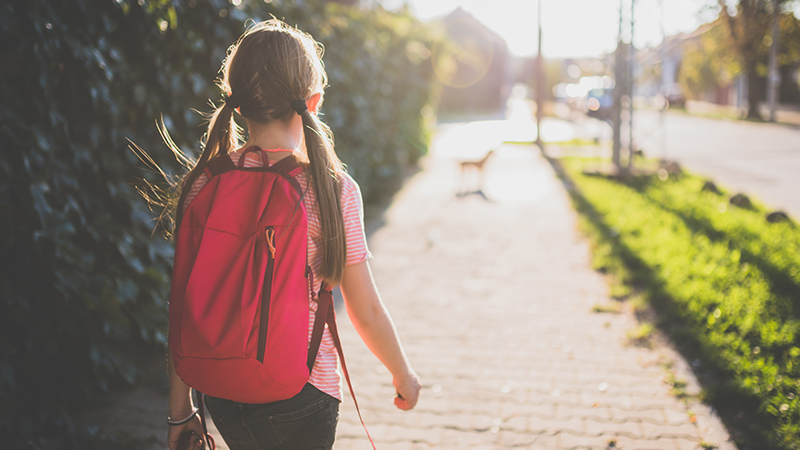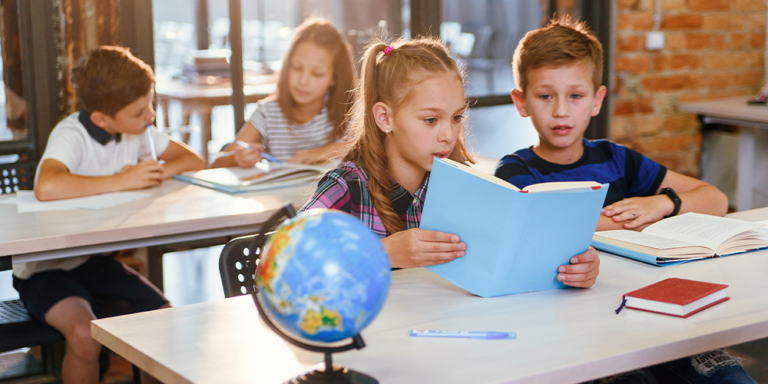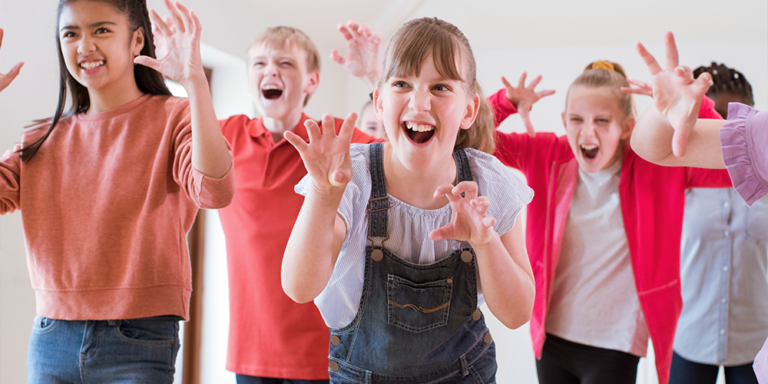Typically, teachers use homework to gauge students’ comprehension of academic skills taught during the class period. Homework can do so much more than that. Teachers, instead, can use homework to reinforce positive behaviors and encourage self-discovery.
This new approach to homework allows students to grow as learners and individuals by developing transferable skills, such as critical thinking and creativity, that can be applied in the classroom and beyond.
Turn Tried-and-True into Something New
Academically based homework absolutely serves a purpose in the classroom, and its merit are undeniable. However, offering alternatives a few days a week can help students find a balance between work, fun and rest, and it can foster happiness and wellness.
The change-up can also make a big impact on your students’ skill development. The National Education Association says there are Four Cs (four transferable skills) that all students should practice: critical thinking, communication, collaboration and creativity. These skills are exactly what alternatives to homework can foster.
The examples below show how you can put a new spin on homework and then review these creative assignments together in class. Feel free to alter them to fit the age, development and interests of your students.
Play
Students engage in activities they find fun, and there’s a significant amount of learning that can take place, too. Whether it’s learning to take turns (collaboration) or thinking outside the box (creativity), play can strengthen and develop core skills.
Assignments:
- Dramatic and fantasy: Imagine a main character, a setting and at least one companion.
- Competitive: Play a board game with at least one other person.
- Physical: For a specified amount of time, play an outside sport with at least one other person.
- Constructive: Choose two materials and build similar structures from them.
- Symbolic: Write a song based on the day’s lesson.
In-Class Review Prompts:
- Elaborate on the storyline or characters that you created.
- Reflect on the competition: Could you have done anything differently?
- Recognize how practice impacts mastery of a skill.
- Describe which materials worked best and why.
- Assess the song for themes, tone, scheme, etc.
Discover
In discovery activities, students take the time to explore the world around them and analyze the components of their environment. Students draw from past experience to make connections with current lessons (critical thinking).
Assignments:
- Recreation: Draw an interpretation of a famous work of art.
- Experimentation: Test a hypothesis.
- Immersion: Attend a meeting, service or class conducted in a foreign language.
- Interview: Interview someone about a historical event.
In-Class Review Prompts:
- Compare and contrast the interpretations to the original.
- Write a summary of the experiment, including whether the results were surprising to students.
- List words that you recognized or learned and reflect on how it felt not knowing the predominant language.
- Present the interview to the class.
Connect
Learning through connections and relationships humanizes new concepts for students. Being able to connect what they’re learning in the classroom to real life experiences tends to increase engagement and foster communication and collaboration.
Assignments:
- Student perspective: Research facts about your cultural ancestry.
- Community perspective: Interview someone about a historical event.
- Media perspective: Follow a current event.
- Direct involvement: Find a social issue that is important to you and volunteer in a related way.
In-Class Review Prompts:
- Students present their cultures to the class and then write a report on the cultures they knew the least about.
- Compare your interview to the lesson in the textbook. What’s missing, and how are they different?
- Compare different coverage of the same event or find a corresponding event in history and make predictions based on the past event.
- Reflect on the volunteer work or report on one person you met during the experience.
Reflect
Reflecting on lessons reinforces what students learned through synthesizing and drawing conclusions. Students who take time to think through what they learned that day flex their critical thinking and creative skills.
Assignments:
- Analytic: Review your work from the teacher’s perspective.
- Goal setting: Create an action plan for improvement specific to lesson or class.
- Meditative: Go through a guided meditation.
In-Class Review Prompts:
- List strengths and weaknesses to improve.
- Revisit throughout the month (or semester) and keep track of results, or journal about your progress of self-development.
- Compare your emotions before and after meditating.






